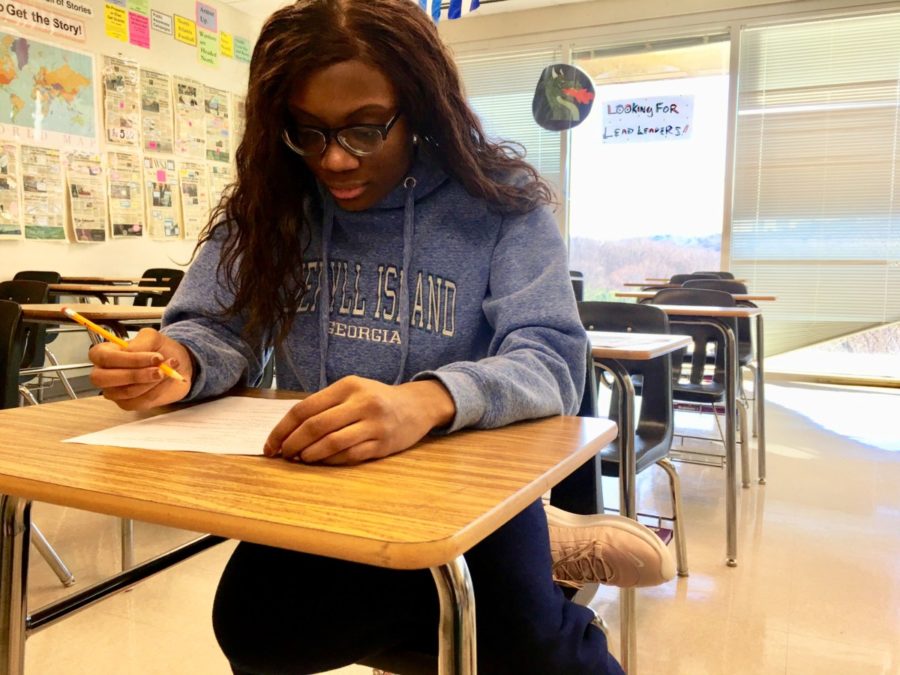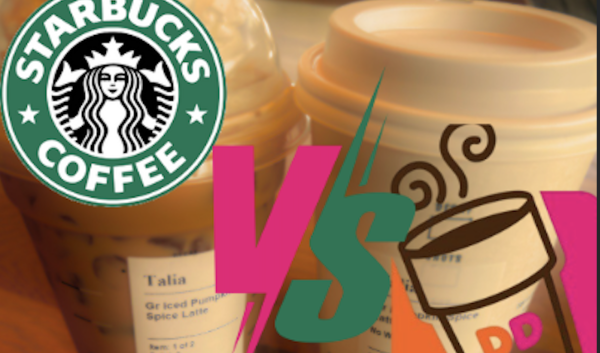Standardized Testing Succeeded in Stressing Students and Staff
Unfair Standards: Junior Kelly Aycock assesses her knowledge in what many would argue an unfair way to judge someone’s level of skill – the dreaded standardized test. Whether it’s the CRCT, the Milestone, the SAT/ACT, or just a regular quiz given out in class, many students protest against this standard.
Towards the end of every semester, both students and staff impatiently await the end of the quarter, craving to trade late nights and early mornings for some much anticipated time off. Yet the light at end of the tunnel is blocked by the very thing that makes the latter so appealing: standardized testing. Dreaded by all, these anxiety inducing tests attempt to evaluate the achievement of students and the performance of teachers, but seem to only succeed at creating confusion, stress, and loathing.
The goal of these infamous standardized tests is of course to try and gather an accurate depiction of how students meet certain standards set out by the state. The results from these tests can then be used to help create curriculum and instruction for teachers based on how the students delivered. Therefore, these tests can be a direct reflection on how well the educators were able to provide their necessary content in a way that students could understand. While this may seem simple and effective, the need to appear as though they have accomplished their task thoroughly can get to the teachers’ heads, causing them to frantically try and prepare students for these tests. This frenzied nature surrounding standardized testing is the cause for much of the chaos and anxiety during what should be a fairly smooth end of the semester. Is it really worth it?
Another cause for speculation is the argument that standardized testing is not an accurate representation of student success in a classroom. These tests portray academic achievement in black and white, forgoing different applications to learning and creativity altogether. In classes where the teachers are drilling only the information subject to the tests, students are missing out on higher level thinking and more practical preparation skills for later on in life.
In 2015, Georgia replaced the well-worn CRCT tests with a new test called the Georgia Milestones to go along with new content standards in core classes. Structurally, the test format was newer – including differently formatted questions – but the real surprise came when the state transitioned from paper and pencil to almost completely online. However, the state only added one more performance level to the three that they had previously, which does not say much in the way of changing how students are assessed in these tests. Competency in and out of a classroom cannot be proved just by how well a student answers multiple choice questions and short written responses. One student who takes issue with these standardized tests is freshman Carmen Aycock. “I don’t like them because they put people under a lot of pressure, and they can’t accurately measure intelligence,” she said.
An education should be more than just memorizing information and regurgitating it back out on Scantrons. For all they hype they receive from the state, standardized tests do not genuinely reflect all of the hard work students and staff put in 180 days a year. After years of end of the semester testing, will students really be able to thrive post- high school if all they’ve learned is how to shade in bubbles? After all, there are no standardized tests in the real world.










